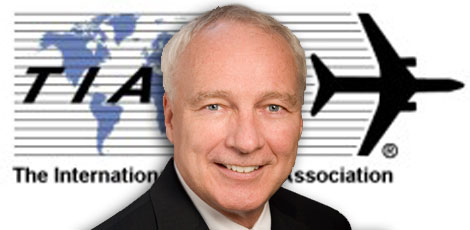Why security data processes must be harmonised
19 / 03 / 2014

SERIOUS disruption to the flow of world trade will be inevitable unless there is significant further testing into advanced data provision for air cargo and mail shipments.
The precaution, which is being enforced to make shipments more secure, requires common global standards and harmonised procedures, says air cargo industry association TIACA.
In an address to the World Customs Organisation’s (WCO) annual Technical Experts Group on Air Cargo Security conference in Brussels, TIACA secretary general Doug Brittin cautioned regulators against taking unilateral action to require submission of certain customs information for all air cargo shipments in advance of aircraft departure.
“All regulatory parties should coordinate this process through the WCO and consult more closely with industry before they move forward on establishing these regulations,” he warned.
A similar process must be followed to establish common procedures for individual member states’ security regulators to ensure that common methods are in place.
While some country-specific advance data programmes have already been tested by customs regulators – including ACAS in the USA, PRECISE in Europe and PACT in Canada – and some results have been shared through the WCO and other venues, gaps in ‘global standards’ remain.
Brittin said that although the air cargo industry fully supports the concept of advance data risk analysis, there are still many positive lessons to be learned relating to the creation of data sets, data transmission, data analysis and the message ‘return’ process.
He underscored certain challenges that have to be overcome, such as the lack of compatibility between many carrier and forwarder IT systems, inaccurate or incomplete information, wide variations in the timing of data availability, as well as limited testing of forwarder capabilities, especially outside of the USA.
The diverse regulatory needs of customs and security regulators, ranging from information acceptance, analysis and messaging, to action and physical screening is another huge challenge for the industry.
While compliance is the responsibility of both customs and security regulators, both have different needs that often involve separate functions within industry management structure.
Brittin added: “Real rule sets are not yet tested and it is essential to determine cost, effort and capability. Actual screening protocols lack common practices, even within some of the existing mutual recognition areas such as the USA/EU, Canada, Japan and others.”
Further questions surround issues such as how e-AWB and e-CSD (trusted shipper) messaging procedures will link to a data scheme.
“Will customs regimes impose penalties on advance filings and, if so, against whom?“ he questioned.
“Without common processes, cargo transiting or transferring at a gateway may be required to be located, off-loaded and screened – and the shipment may be only one piece in a ULD consolidation.
“Carriers may be required to submit the same or similar data to multiple customs regimes, based on routing. We also face a situation where different screening procedures, varying by country, will continue for targeted, higher risk shipments,” he added.
There are concerns too about small- and medium-sized forwarders, who may be ostracised by the new processes.
The precaution, which is being enforced to make shipments more secure, requires common global standards and harmonised procedures, says air cargo industry association TIACA.
In an address to the World Customs Organisation’s (WCO) annual Technical Experts Group on Air Cargo Security conference in Brussels, TIACA secretary general Doug Brittin cautioned regulators against taking unilateral action to require submission of certain customs information for all air cargo shipments in advance of aircraft departure.
“All regulatory parties should coordinate this process through the WCO and consult more closely with industry before they move forward on establishing these regulations,” he warned.
A similar process must be followed to establish common procedures for individual member states’ security regulators to ensure that common methods are in place.
While some country-specific advance data programmes have already been tested by customs regulators – including ACAS in the USA, PRECISE in Europe and PACT in Canada – and some results have been shared through the WCO and other venues, gaps in ‘global standards’ remain.
Brittin said that although the air cargo industry fully supports the concept of advance data risk analysis, there are still many positive lessons to be learned relating to the creation of data sets, data transmission, data analysis and the message ‘return’ process.
He underscored certain challenges that have to be overcome, such as the lack of compatibility between many carrier and forwarder IT systems, inaccurate or incomplete information, wide variations in the timing of data availability, as well as limited testing of forwarder capabilities, especially outside of the USA.
The diverse regulatory needs of customs and security regulators, ranging from information acceptance, analysis and messaging, to action and physical screening is another huge challenge for the industry.
While compliance is the responsibility of both customs and security regulators, both have different needs that often involve separate functions within industry management structure.
Brittin added: “Real rule sets are not yet tested and it is essential to determine cost, effort and capability. Actual screening protocols lack common practices, even within some of the existing mutual recognition areas such as the USA/EU, Canada, Japan and others.”
Further questions surround issues such as how e-AWB and e-CSD (trusted shipper) messaging procedures will link to a data scheme.
“Will customs regimes impose penalties on advance filings and, if so, against whom?“ he questioned.
“Without common processes, cargo transiting or transferring at a gateway may be required to be located, off-loaded and screened – and the shipment may be only one piece in a ULD consolidation.
“Carriers may be required to submit the same or similar data to multiple customs regimes, based on routing. We also face a situation where different screening procedures, varying by country, will continue for targeted, higher risk shipments,” he added.
There are concerns too about small- and medium-sized forwarders, who may be ostracised by the new processes.














